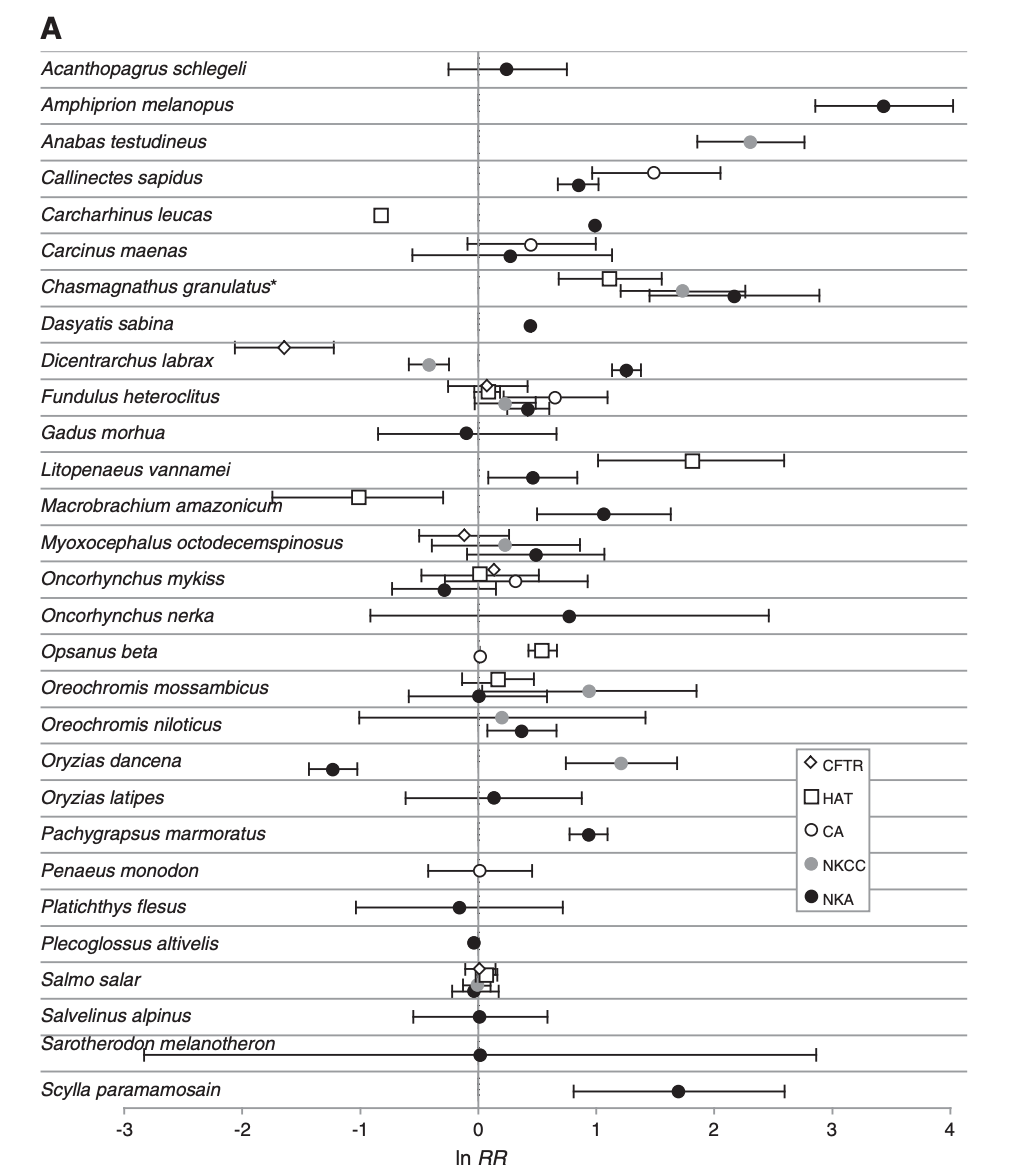Keyword: Na+/K+/2Cl− cotransporter

Havird, J. C., R. P. Henry, and A. E. Wilson. 2013. Altered expression of Na+/K+-ATPase and other osmoregulatory genes in the gills of euryhaline animals in response to salinity transfer: a meta-analysis of 59 quantitative PCR studies over 10 years. Comparative Biochemistry and Physiology, Part D: 8(2):131-140.
Abstract
Recent advances in molecular techniques have allowed gene expression in euryhaline animals to be quantified during salinity transfers. As these investigations transition from studying single genes to utilizing genomics-based methodologies, it is an appropriate time to summarize single gene studies. Therefore, a meta-analysis was performed on 59 published studies that used quantitative polymerase chain reaction (qPCR) to examine expression of osmoregulatory genes (the Na+/K+–ATPase, NKA; the Na+/K+/2Cl− cotransporter, NKCC; carbonic anhydrase, CA; the cystic fibrosis transmembrane regulator, CFTR; and the H+–ATPase, HAT) in response to salinity transfer. Based on 887 calculated effect sizes, NKA, NKCC, CA, and HAT are up-regulated after salinity transfer, while surprisingly, CFTR is unchanged. Meta-analysis also identified influential factors contributing to these changes. For example, expression was highest: 1) during transfers from higher to lower salinities comprising a physiological transition from osmoconformity to osmoregulation, 2) 1–3 days following transfer, 3) during dissimilar transfers, and 4) in crustaceans rather than teleosts. Methodological characteristics (e.g., types of controls) were not important. Experiments lacking in the current literature were also identified. Meta-analyses are powerful tools for quantitatively synthesizing a large body of literature, and this report serves as a template for their application in other areas of comparative physiology